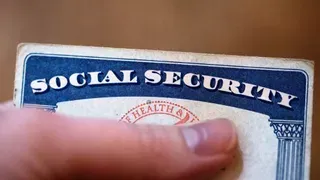March 5, 2022
Disney Sidesteps 'Don't Say Gay' Bill Amid Funding GOP Sponsors
READ TIME: 2 MIN.
IndieWire writes that The�Orlando Sentinel�(behind a firewall) reported on February 25 that The Walt�Disney�Company "has given money to every single sponsor and co-sponsor of the 'Don't Say Gay' bill, which was passed by Florida's House of Representatives February 24. Officially titled the House Bill 1557, the proposed law is heading to the state's Republican-held Senate next."
On Friday, the Wrap reports, Disney responded to calls for action over the Florida House of Representatives passage of a Don't Say Gay" bill that would limit what classrooms can teach about sexual orientation and gender.
And sidestepped the issue.
�"We understand how important this issue is to our LGBTQ+ employees and many others," the statement begins. "For nearly a century, Disney has been a unifying force that brings people together. We are determined that it remains a place where everyone is treated with dignity and respect."
As the statement continues, Disney claims its "inspiring content" is action enough: "The biggest impact we can have in creating a more inclusive world is through the inspiring content we produce, the welcoming culture we create here and the diverse community organizations we support, including those representing the LGBTQ+ community."
But, IndieWire adds, "the company is still funding the homophobic politicians who've supported the bill, and nothing Disney CEO�Bob Chapek�has said indicates that that will change."
The Disney statement came "one day after significant advocacy organizations staged a protest outside the Walt Disney World Resort, including the LGBT rights advocacy organization SAVE and the AIDS Healthcare Foundation. Along with hundreds of protestors, the organizations called on Disney to publicly denounce the bill," reports MovieWeb.
"The 'Don't Say Gay' bill, officially called the Parental Rights in Education bill, not only outlaws teaching about sexual orientation and gender identity from kindergarten through Grade 3 'or in a manner that is not age-appropriate or developmentally appropriate for students in accordance with state standards,' but it also allows parents to sue schools and individual teachers who engage in these topics," writes MovieWeb.







